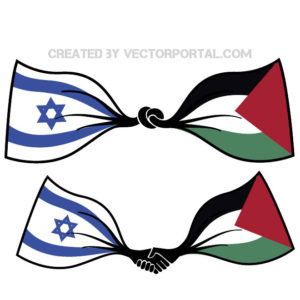In 2014, I visited the Galilee, and stayed with one of three Jewish families in the Druze village of Peki’in. They were an older couple, Holocaust survivors from the Netherlands, and they lived right next door to the carob tree that Rabbi Shimon Bar Yochai, author of the Jewish mystical book, the Kabbalah, supposedly subsisted on for 13 years when he fled the Romans and had to hide out in a cave.
In addition to visiting the tree, we visited a “national park” nearby, which was mostly filled with scrubby desert flora. But in the middle of the area sat an old stone church, and in front of the church sat an old man wearing a keffiyeh. Our host asked the man why he was there and the man told us his story. He had been 11 years old in 1948 when the Israeli soldiers came into his village. They told his mother she had to leave–for just a couple of weeks, they said. They needed to do some work and then it would be fine to return. They could leave most of their things–no need to take the donkey.
When they returned, the entire village had been razed. Only the church was left standing. Later the government turned the area into a national park, ironically charging admission for this man to enter his own village, where he sat day after day on a one-person vigil to commemorate what had happened to his home.
Later that night, our host told his story. He’d been a “hidden child,” sheltered by a Christian family during the war. But the trauma of being left by his parents (who ended up killed in the death camps) had never fully subsided.
Last night I went to hear a reading and talk from the Palestinian poet Mosab Abu Toha, who, in response to a question about the value of writing poems at times of such death and devastation, said that as poets we need to hang on to the stories–and we have a responsibility to tell them.
Mosab Abu Toha’s work does just that. He portrays Gaza through the lens of the people that live there. I think this is one of the reasons that poet Audre Lorde said, Poetry is not a luxury; it’s a necessity, the quote that begins Abu Toha’s new book, Forest of Noise.

When I went to the border in early 2020, I heard many stories from people that kept me awake at night, and kept me crying for days and weeks after I returned. I wrote poems about some of these stories; and I also wrote poems about the man in front of the Church in the Galilee and our Holocaust survivor host in Peki’in. But I continue to worry that capturing these stories in poems is not enough. For weeks, months, and even now, all of us on the border trip have continued to feel the weight of these stories. How can we keep ourselves healthy and lean into joy without discounting or ignoring the moral imperative for action that these stories should lead us to?
And how do we untangle the knots when stories contradict each other? How can we move into a space that rejects the idea of right and wrong, a space that has no sides?
My friend and compañera on the border trip carried this sign everywhere she went.

Photo: D. Dina Friedman
May it be so. B’aruch Ha’Shem. Inshallah.
Subscribe at https://ddinafriedman.substack.com

